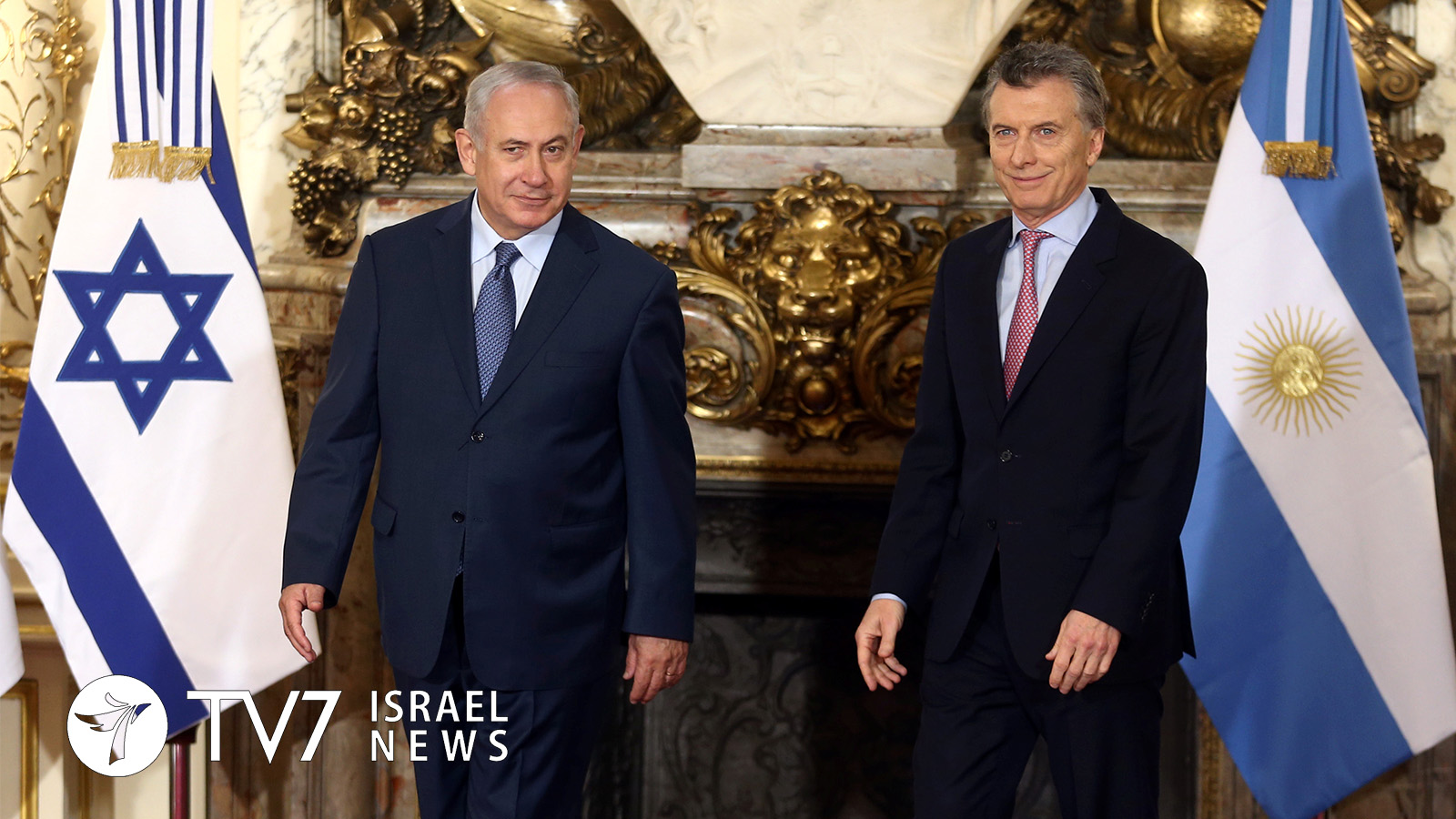Israeli Prime Minister Benjamin Netanyahu warned, in a joint press conference with Argentinian President Mauricio Macri that the Islamic Republic of Iran, together with its proxy Hezbollah, has a terror machine that operates across the globe – including in Latin America – while declaring that the need to fight terrorism, both from Iran and the Islamic State, must be a united effort by the international community. With regard to the nuclear agreement Iran reached with world powers, which included: Russia, China, France, Britain, Germany and the United States under the Obama Administration, Prime Minister Netanyahu reiterated Israel’s position in which he declared the 2015 agreement as a “bad deal” that either must be fixed or cancelled.
Meanwhile in Washington, Israeli Ambassador to the US Ron Dermer said last night that Israel hoped that within a few weeks there would be a dramatic change in the position of the United States with regard to the nuclear agreement with Iran, which would entail introducing changes to the agreement or its cancellation. The comments by Ambassador Dermer at an event marking the Jewish New Year, Rosh Hashanah, comes just one month before President Trump will review Iran’s compliance with the nuclear agreement, under a US law that forces the President of the United States to inform congress on the matter every 90 days, and whether it is in the best interest of the national security of the United States. While President Trump declared the agreement on many occasions as “the worst deal ever negotiated,” the American leader has faced two of the 90-day deadlines so far, and both times avoided scraping the agreement, stating that Iran was meeting the conditions needed to keep enjoying sanctions relief. But more recently, President Trump has said he does not expect to certify Iran’s compliance again, as Tehran’s ballistic missile program has pointed to a breach of the international agreement. Washington declared on several occasions that Tehran’s testing of ballistic missiles “violated the spirit of the 2015 nuclear agreement,” with officials citing Paragraph 3 of Annex B of UN Security Council Resolution 2231, which calls upon Iran “not to undertake any activity related to ballistic missiles designed to be capable of delivering nuclear weapons, including launches using such ballistic missile technology” for eight years after the adoption date of the nuclear agreement. Since the adoption of the nuclear agreement, however, Iran has conducted several ballistic missile tests, which are capable of carrying a nuclear payload. It is important to note that Iran rejects any claims of violating the nuclear agreement, considering the wording of the text, which Tehran interprets as an advisory rather than a conclusive demand.
